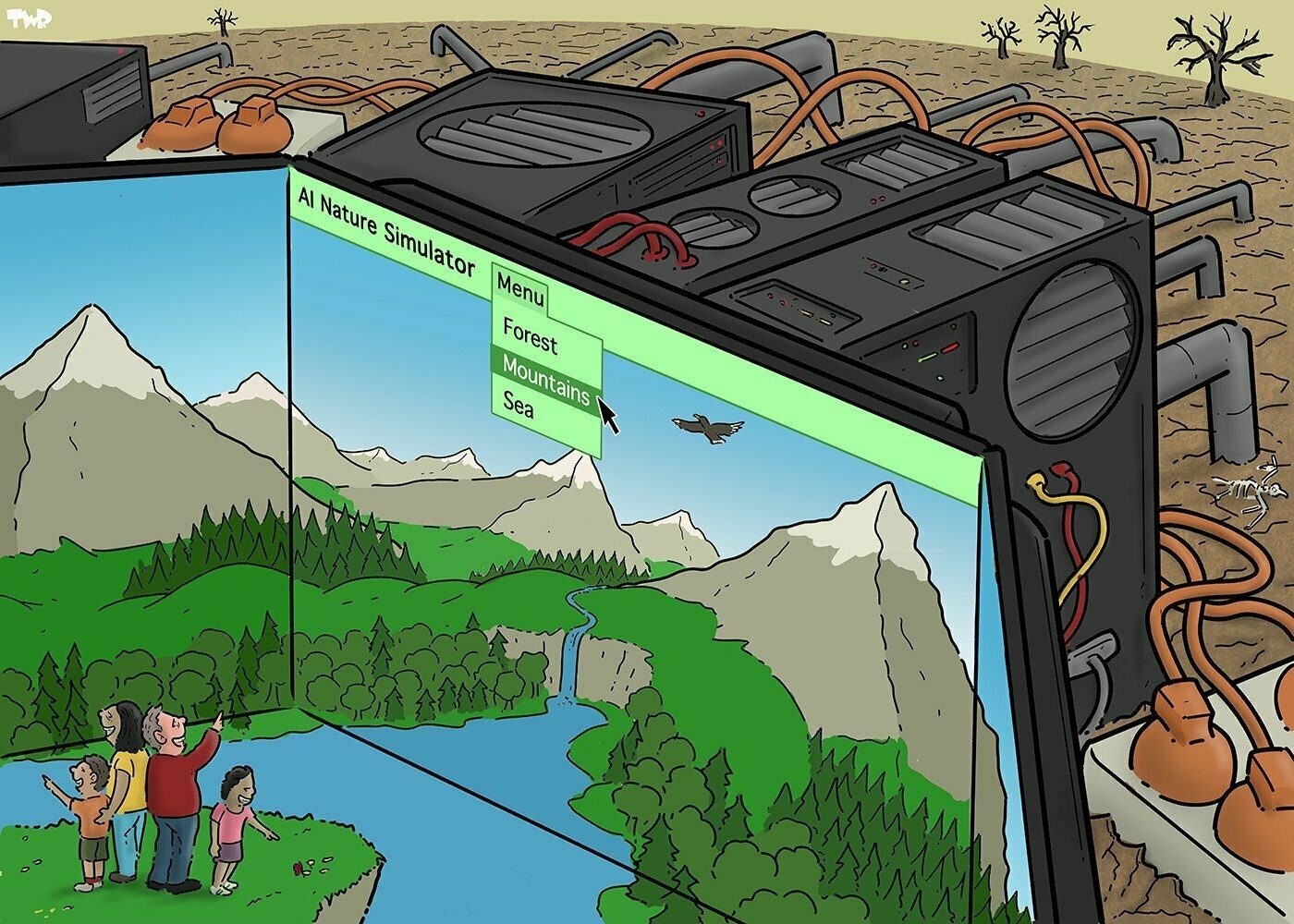A tiny oasis of life, surrounded by an immensity of death

This cartoon is exactly the scenario I’m concerned about happening to the planet we call home. I’m going to juxtapose it with a quotation from William Shatner, the actor best known for his role in Star Trek and who finally got to go to space in 2021
Last year, at the age of 90, I had a life-changing experience. I went to space, after decades of playing a science-fiction character who was exploring the universe and building connections with many diverse life forms and cultures. I thought I would experience a similar feeling: a feeling of deep connection with the immensity around us, a deep call for endless exploration. A call to indeed boldly go where no one had gone before.
I was absolutely wrong. As I explained in my latest book, what I felt was totally different. I knew that many before me had experienced a greater sense of care while contemplating our planet from above, because they were struck by the apparent fragility of this suspended blue marble. I felt that too. But the strongest feeling, dominating everything else by far, was the deepest grief that I had ever experienced.
While I was looking away from Earth, and turned towards the rest of the universe, I didn’t feel connection; I didn’t feel attraction. What I understood, in the clearest possible way, was that we were living on a tiny oasis of life, surrounded by an immensity of death. I didn’t see infinite possibilities of worlds to explore, of adventures to have, or living creatures to connect with. I saw the deepest darkness I could have ever imagined, contrasting starkly with the welcoming warmth of our nurturing home planet.
This was an immensely powerful awakening for me. It filled me with sadness. I realised that we had spent decades, if not centuries, being obsessed with looking away, with looking outside. I played my part in popularising the idea that space was the final frontier. But I had to get to space to understand that Earth is, and will remain, our only home. And that we have been ravaging it, relentlessly, making it uninhabitable.
Image: Tjeerd Royaards
Text: The Guardian